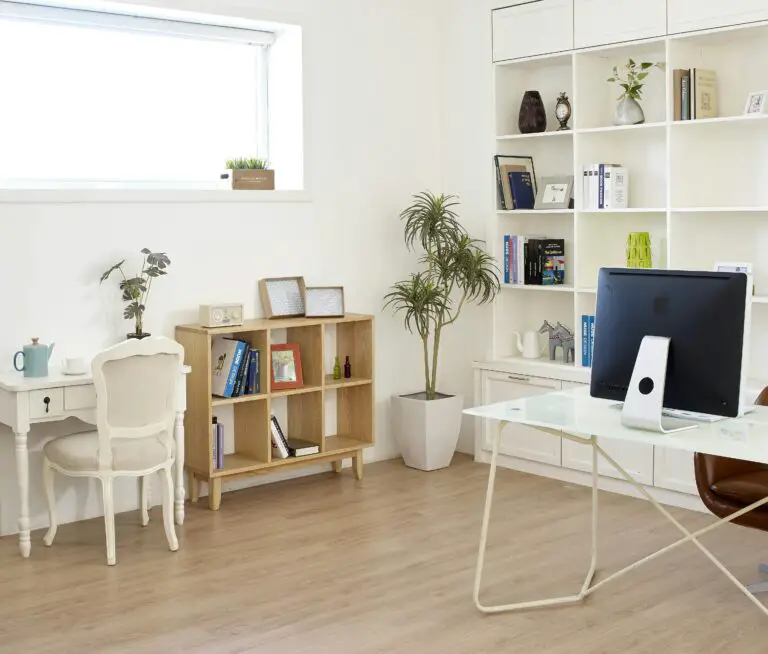Our homes often become repositories for clutter—accumulating everything from old magazines to unused gadgets and forgotten knick-knacks. The chaos of clutter not only impacts our physical space but also takes a toll on our mental well-being. However, by embracing the practice of regular decluttering, we can transform our living spaces into tranquil sanctuaries that promote peace, productivity, and happiness.
In this comprehensive guide, we’ll delve into the importance of decluttering your home regularly. From reducing stress and anxiety to enhancing efficiency and organization, decluttering offers a myriad of benefits that extend far beyond a tidy living room.
1. Enhances Mental Well-being
One of the most significant benefits of regular decluttering is its positive impact on mental health. A cluttered environment can contribute to feelings of stress, anxiety, and overwhelm, making it difficult to relax and unwind.
Studies have shown that excess clutter can overstimulate the brain, leading to increased levels of cortisol, the stress hormone. By decluttering regularly, you can create a calmer, more serene living space that promotes mental clarity and reduces feelings of tension and anxiety.
2. Increases Productivity and Focus
A clutter-free environment is essential for promoting productivity and focus. When your home is filled with excess stuff, it’s easy to become distracted and overwhelmed, hindering your ability to concentrate on tasks and goals.
By decluttering regularly, you can eliminate distractions and create a more conducive environment for work, study, and creativity. A clear space allows you to focus on the task at hand, boosting efficiency and productivity in all areas of your life.
3. Promotes Physical Health
Clutter not only affects mental well-being but can also impact physical health. Piles of clutter can collect dust, allergens, and even mold, creating a breeding ground for respiratory issues and allergies.
Additionally, navigating through a cluttered space increases the risk of accidents and injuries, especially for older adults and young children. Regular decluttering ensures that your home remains clean, safe, and conducive to good health for you and your family.
4. Creates a Sense of Calm and Serenity
There’s a reason why minimalist living has gained popularity in recent years—fewer possessions often equate to greater peace and tranquility. A clutter-free home fosters a sense of calm and serenity, allowing you to relax and recharge after a long day. When your living space is free from excess stuff, you can appreciate the beauty of simplicity and create a more harmonious environment for yourself and your loved ones.
5. Fosters Financial Responsibility
Regular decluttering can also have financial benefits. By taking stock of your possessions and eliminating items you no longer need or use, you can avoid unnecessary spending on duplicates or replacements.
Additionally, selling or donating gently used items can provide extra income or tax deductions, putting money back in your pocket. By adopting a more mindful approach to consumption and decluttering regularly, you can save money and live more intentionally.
Conclusion
From reducing stress and increasing productivity to promoting physical health and fostering financial responsibility, the benefits of decluttering are numerous and far-reaching. So take the first step towards a more harmonious home by decluttering regularly. Your mind, body, and spirit will thank you for it.
Frequently Asked Questions (FAQs)
1. How often should I declutter my home?
The frequency of decluttering depends on your lifestyle and preferences. Some people prefer to declutter seasonally, while others tackle clutter on a monthly or weekly basis. The key is to find a schedule that works for you and stick to it consistently to prevent clutter from accumulating.
2. How do I get started with decluttering?
Begin by identifying areas of your home that are prone to clutter, such as closets, drawers, and countertops. Start small by tackling one area at a time, sorting items into categories such as keep, donate, and discard. Set realistic goals and timelines for decluttering each space, and enlist the help of family members or friends if needed.
3. What should I do with items I no longer need or use?
Consider donating gently used items to local charities or thrift stores, selling them online or at a garage sale, or recycling them if possible. Many communities also offer curbside pickup for large items or hazardous materials, making it easy to dispose of unwanted items responsibly.
4. How can I maintain a clutter-free home after decluttering?
To maintain a clutter-free home, adopt habits such as regularly tidying up, practicing mindful consumption, and avoiding impulse purchases. Establish designated storage spaces for items and make it a habit to put things away after use. Regularly reassess your belongings and declutter as needed to prevent clutter from accumulating.
5. What are some common decluttering mistakes to avoid?
One common decluttering mistake is attempting to tackle too much at once, which can lead to overwhelm and burnout. Another mistake is holding onto items out of guilt or obligation, rather than considering whether they truly serve a purpose or bring joy. Avoid procrastinating and make decluttering a priority to maintain a clutter-free home over the long term.



